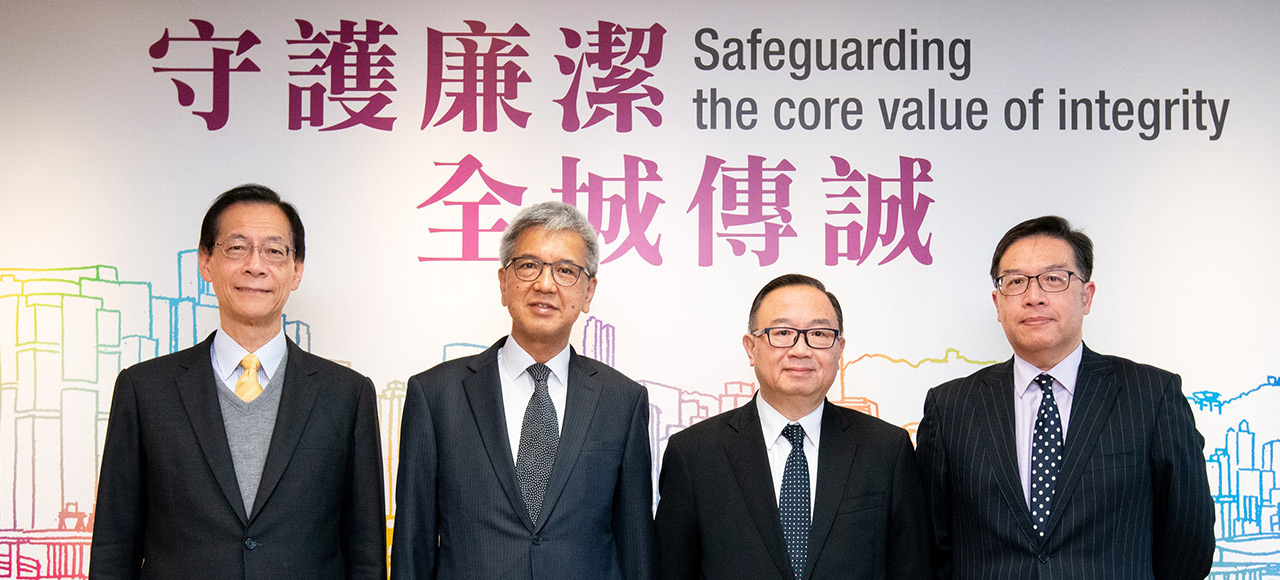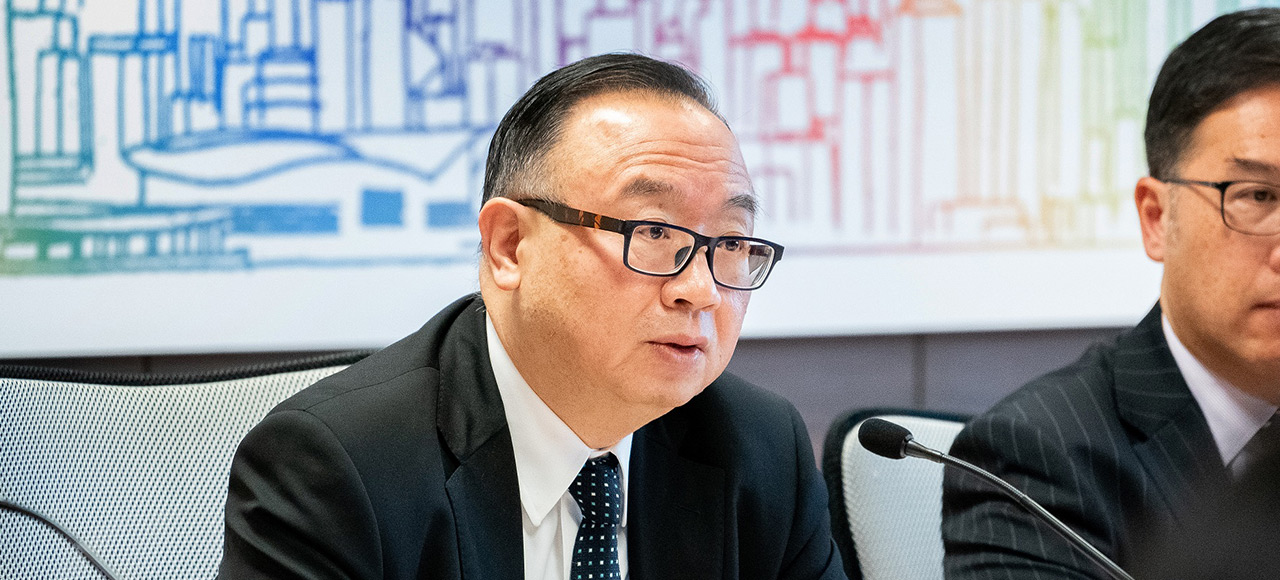
A stringent system of checks and balances is essential to the rule of law. The ICAC, being one of the law enforcement agencies in Hong Kong to ensure the primacy of law and order, is subject to the scrutiny of four independent advisory committees overseeing various aspects of its work. Each year, the chairmen of these four committees will host a press conference to review their work during the year.
At the latest press conference held in January, Mr Martin Liao Cheung-kong, Chairman of the Advisory Committee on Corruption, noted that while protests and social incidents in Hong Kong since June last year had brought unprecedented challenges to the society, the ICAC had remained steadfast and committed to its anti-corruption duties. By combating corruption professionally and without fear or favour, the Commission continued to safeguard Hong Kong’s probity and rule of law, said Mr Liao.
The chairman added that his committee appreciated the concerted and pro-active efforts of the ICAC’s three functional arms – the Operations Department, the Corruption Prevention Department and the Community Relations Department in dealing with corruption relating to various sectors.
Globally, the ICAC continued to be acclaimed as a world-class model in fighting corruption and Hong Kong continued to be rated highly in international surveys. In the 2019 TRACE Bribery Risk Matrix released in November last year, the city was ranked the 10th among 200 countries and territories, topping the list of Asian places.

“International cooperation serves as an effective tool for combating corruption,” Mr Liao said, adding that the Commission did a remarkable job in facilitating international cooperation on graft-fighting and experience sharing in 2019.
In May 2019, the Commission and the World Justice Project jointly organised the 7th ICAC Symposium, providing a platform for over 500 participants from more than 50 jurisdictions to share ideas and experience in the fight against corruption. Following the Symposium, an inaugural capacity building programme jointly organised by the Commission and the International Association of Anti-Corruption Authorities was conducted for some 180 anti-corruption experts.
To fulfil its international obligation under the framework of the United Nations Convention against Corruption (UNCAC), the ICAC continued to collaborate with overseas law enforcement agencies on capacity training in 2019, and explored training opportunities with over 50 countries which were signatories of the UNCAC. In addition, nine tailor-made training programmes were conducted for eight signatories on the Belt and Road route.
On cross-boundary cooperation, Mr Liao said the ICAC joined a tripartite meeting with the heads of the Guangdong Provincial Commission of Supervision and the Commission Against Corruption of Macao in May last year. The three parties agreed in principle to join hands to strengthen efforts in combating cross-boundary corruption, promoting integrity culture and organising capacity building programmes for graft-fighters.
Joining Mr Liao at the annual press conference were Mr Benjamin Tang Kwok-bun, Chairman of the Operations Review Committee; Professor Timothy Tong Wai-cheung, Chairman of the Citizens Advisory Committee on Community Relations; and Mr Adrian Wong Koon-man, Chairman of the Corruption Prevention Advisory Committee.